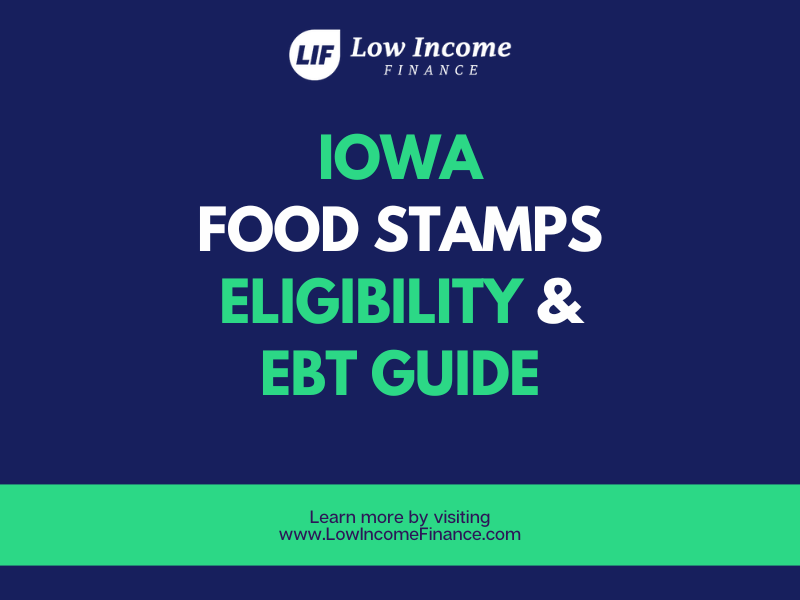Food stamps Iowa unveils a compelling narrative, inviting you on a journey through the intricacies of this essential program. Prepare to navigate the eligibility criteria, discover the benefits it offers, and embark on the application process with clarity and ease.
Our comprehensive guide unravels the complexities of Food Stamps Iowa, empowering you with the knowledge to access the assistance you deserve.
Program Overview: Food Stamps Iowa
The Food Stamps program, officially known as the Supplemental Nutrition Assistance Program (SNAP), is a federally funded program that provides financial assistance to low-income individuals and families to purchase food. In Iowa, the program is administered by the Iowa Department of Human Services (DHS).
To be eligible for Food Stamps in Iowa, you must meet certain income and asset limits. You must also be a U.S. citizen or a qualified non-citizen, and you must live in Iowa.
How to Apply
To apply for Food Stamps in Iowa, you can either submit an application online or by mail. You can also apply in person at your local DHS office.
The application process can take up to 30 days. Once you have applied, you will be interviewed by a DHS caseworker who will determine if you are eligible for the program.
In Iowa, food stamps can be a lifeline for families struggling to make ends meet. But even with this assistance, it can be hard to find affordable and healthy food options. If you’re looking for a delicious and authentic Laotian meal, check out laos food near me . Their menu features a variety of traditional dishes made with fresh ingredients and authentic spices.
And because they’re committed to providing affordable options, you can enjoy a satisfying meal without breaking the bank. So next time you’re looking for a great meal, consider supporting a local business and trying some delicious Laotian food.
Benefits and Allowances

Iowa’s food assistance program provides a range of benefits to eligible households. These benefits include monthly allotments of food stamps, which can be used to purchase groceries at authorized retailers. The amount of food stamps a household receives depends on its size and income.
In addition to food stamps, Iowa’s food assistance program also offers a number of other benefits, including:
Supplemental Nutrition Assistance Program (SNAP), Food stamps iowa
- Provides monthly allotments of food stamps to low-income households.
- The amount of food stamps a household receives depends on its size and income.
- SNAP benefits can be used to purchase groceries at authorized retailers.
Special Supplemental Nutrition Program for Women, Infants, and Children (WIC)
- Provides nutritional assistance to pregnant women, new mothers, and children under the age of 5.
- WIC benefits include vouchers for food, nutrition education, and breastfeeding support.
Commodity Supplemental Food Program (CSFP)
- Provides monthly boxes of food to low-income seniors aged 60 and older.
- CSFP boxes include a variety of nutritious foods, such as fruits, vegetables, and grains.
Program Administration

The Iowa Department of Human Services (DHS) is the state agency responsible for administering the Food Stamps program. The DHS determines eligibility for the program and issues benefits to eligible households. Local offices and caseworkers play a vital role in the program, assisting households with the application process and providing ongoing support.
Eligibility Determination
To determine eligibility for Food Stamps, the DHS considers factors such as household income, household size, and resources. The DHS uses a standard set of income and asset limits to determine eligibility. Households must meet all eligibility criteria to receive benefits.
Benefit Issuance
Eligible households receive benefits in the form of an Electronic Benefits Transfer (EBT) card. The EBT card can be used to purchase eligible food items at authorized retail locations. Benefits are issued on a monthly basis and the amount of benefits a household receives is based on household size and income.
Local Offices and Caseworkers
Local DHS offices provide assistance to households applying for Food Stamps. Caseworkers help households complete the application process, verify eligibility, and issue benefits. Caseworkers also provide ongoing support to households, such as helping them find resources and connecting them with other social services.
End of Discussion

As we conclude our exploration of Food Stamps Iowa, remember that this program stands as a beacon of support for those facing food insecurity. Its benefits extend beyond nourishment, fostering a sense of dignity and empowerment. Together, let us continue to advocate for its accessibility and effectiveness, ensuring that every Iowan has the opportunity to thrive.
